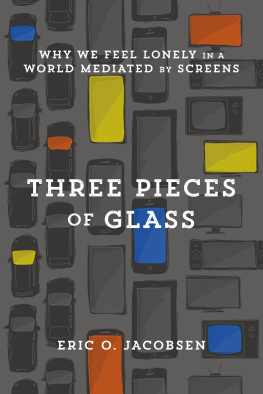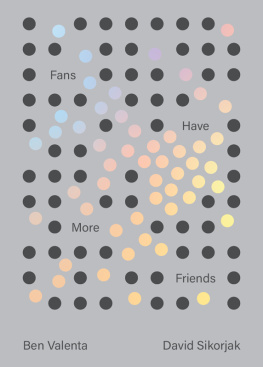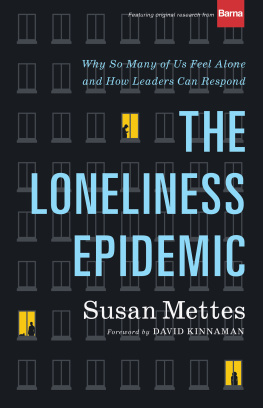2020 by Eric O. Jacobsen
All rights reserved. No part of this publication may be reproduced, stored in a retrieval system, or transmitted in any form or by any meansfor example, electronic, photocopy, recordingwithout the prior written permission of the publisher. The only exception is brief quotations in printed reviews.
Library of Congress Cataloging-in-Publication Data is on file at the Library of Congress, Washington, DC.
Unless otherwise noted, Scripture quotations are from the Holy Bible, New International Version. NIV. Copyright 1973, 1978, 1984, 2011 by Biblica, Inc. Used by permission of Zondervan. All rights reserved worldwide. www.zondervan.com. The NIV and New International Version are trademarks registered in the United States Patent and Trademark Office by Biblica, Inc.
Scripture quotations labeled ESV are from The Holy Bible, English Standard Version (ESV), copyright 2001 by Crossway, a publishing ministry of Good News Publishers. Used by permission. All rights reserved. ESV Text Edition: 2016
Contents
Cover
Half Title Page
Title Page
Copyright Page
Acknowledgments
Introduction: Where Everybody Knows Your Name
Part 1: Definitions
1. What Is Belonging?
2. The Special Need for Civic Belonging
3. Signs, Instruments, and Foretastes of Belonging
Part 2: Kingdom Belonging
4. The Character of Kingdom Belonging
5. The Character of Worldly Belonging
6. The Shape of Kingdom Belonging
7. Strangers and Kingdom Belonging
8. Kingdom and Covenant Belonging
Part 3: The Gospel and Belonging
9. The Promise of Community
E XCURSUS : Social Capital
E XCURSUS : Place Attachment
11. The Promise of a Good Story
E XCURSUS : Thick and Thin Language
Part 4: A Crisis of Belonging
12. Three Pieces of Glass: The Crisis of Belonging in Relationships
13. The Declining Civic Realm: The Crisis of Belonging in Places
14. Busy: The Crisis of Belonging in Story
Part 5: The Shapes Choices Take
15. Communally Shaped Choices
16. Policy-Shaped Choices
17. Liturgically Shaped Choices
Part 6: Encouraging Belonging
18. Belonging by Design
19. Belonging through Proximity
20. Belonging by Placemaking
21. Belonging and Local Culture
Conclusion: Belonging to the God Who Knows Your Name
Notes
Index
Back Cover
Acknowledgments
I would like to acknowledge some of the conversation partners, collaborators, and encouragers who helped me with this project along the way. Hazel Borys, Mark Childs, Andy Crouch, Lee Hardy, Wendy Hoashi-Erhardt, Lance Kagey, Richard Mouw, Joseph Myers, Ron Rienstra, Laura Smit, and James K. A. Smith provided fresh insight and needed feedback as the ideas for this project began to bubble to the surface. After I took a long hiatus to focus on pastoral work, my spiritual director, Sara Singleton, helped me navigate the path back into writing again. Bob Hosack at Baker was patient and gracious in giving me time and space to let this book become what it needed to be. Lisa Williams, as always, helped me sound smarter than I actually am and helped me get the manuscript ready for the first, second, and third pitch. And project editor James Korsmo quickly caught the spirit of what I was trying to say, and his suggestions, like the rug in The Big Lebowski , really tied the room together.
This project went through many iterations, and it took a long time to figure out if any of it was helpful. So I am particularly grateful to those groups who gave their time and attention so I could field test the ideas. Friends at First Pres Tacoma; Colorado Springs Presbyterian Church; Providendia Church in West Palm Beach; Third Church, Richmond, VA; and the Members Christian Caucus of the Congress for the New Urbanism all listened well, asked great questions, and helped me distinguish the wheat from the chaff.
My Friday-morning guys group kept me grounded week by week and offered prayer and encouragement on those days when this project felt like a chore. My childrenKate, Peter, Emma, and Abewere understanding when I had to skip some family time to work on this project and provided a steady supply of good excuses to set the writing aside and reengage the world. They unwittingly served as an important focus group as I watched them figure out how to find places to belong among their friends, in the church, and in our walkable neighborhood. And my wife, Liz, not only has been my faithful companion on this journey but is also the one who inspires me every day with her ability to create communities of belonging out of the most unlikely ingredients.
This book is dedicated to Judi Jacobsen, for whom every trip to the store has been a master class in civic belonging.
Introduction
Where Everybody Knows Your Name
The door opens, flooding the bar with natural light. An ordinary-looking, heavyset man appears and is greeted by a chorus of voices: Norm!
Thus begins the first episode of Cheers , the TV sitcom that dominated the airwaves during the 1980s. Cheers made the top-ten list of the Nielson ratings in eight of its eleven seasons. The Norm greeting became a standard trope for the show. It fit perfectly with the theme songs chorus, You want to be where everybody knows your name.
There were many reasons for Cheers popularity, but perhaps the most compelling was this themes resonance with audiences. Viewers remained loyal because they longed for a place where they were known well enough to be greeted on arrival by name. This was true in the 80s and is even more so today. This longing, while ubiquitous, is not well understood.
What specifically do we long for when we want a place where everybody knows our name? Why do we seem to be moving further away from it each passing year? And how might we encourage the development of these kinds of real places so we dont have to settle for watching people enjoy fictional ones? The answer, surprisingly enough, has to do with three pieces of glassthe car windshield, the TV, and the smartphone. These three pieces of glass represent key choices weve made at the societal and individual levels to devalue face-to-face contact with other people for the sake of efficiency, autonomy, and entertainment. But saying this only helps us to understand the problem. The more difficult part is to figure out how to solve the problem. This book is an attempt to do just that. But before we get into that project, lets begin by digging a little deeper into that desire to be greeted by name.
When I arrive home, Im greeted by people who know my name and greet me with names that betray an even more intimate connection, such as Dad or Honey. Yet I, too, long for that Norm experience. What Cheers (the bar) offers that my home does not is a particular kind of connection that I describe as civic. Additionally, the Cheers setting is quasi-public, making it a kind of forum for developing relationships with people who are different culturally and/or socioeconomically. As society becomes increasingly polarized and fragmented, settings where one can comfortably interact with people different from oneself are increasingly important.
Cheers is also a real brick-and-mortar place (or at least the Bull and Finch Pub in Boston that its based on is) where people have to be bodily present for the proper greeting to take place. This real place is a neighborhood bar, meaning that many of its patrons live in relative proximity to one another and are likely to bump into one another outside of the bar. Cheers is in Boston, which influences the topics that are discussed (Red Sox) as well as some of the tensions that exist between patrons (class, nationality, education level, etc.).











